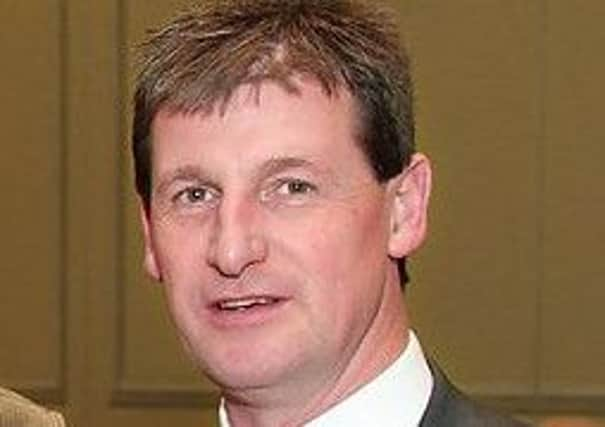RHI scandal: UFU advises farmers on anonymity


Wesley Aston, chief executive of the Ulster Farmers’ Union, said that without an audit being done farmers would not be able to show “they acted within the terms of the scheme”.
He spoke out following reports last month that the Department for the Economy (which is in charge of the scheme) was minded to name businesses in receipt of money under the controversy-hit project.
Advertisement
Hide AdAdvertisement
Hide AdThere were about 2,100 business or farm applicants to the non-domestic part of the RHI programme, which began in 2012.
In its statement, the UFU said that “the vast majority of people using the scheme are doing so legitimately”.
However, that claim appears to clash with a figure cited by Finance Minister Mairtin O Muilleoir last month.
He said that a report into the scheme had found only 47% of people whose systems were inspected were using RHI for “an eligible purpose”.
Advertisement
Hide AdAdvertisement
Hide AdThe figure is contained within an unpublished draft report by accountancy firm PwC, and it is not plain on what exact grounds the remaining 53% were deemed ineligible.
The UFU statement said the focus of any review into RHI should be on “the failings of others to deliver a scheme with adequate safeguards”.
It is “advising members who availed of the scheme not to give permission for their names to be disclosed, unless audits have been carried out of their installation”.
Mr Aston said: “The department responsible has been slow at getting these audits done. It has no excuses for its failure to act in a timely way. Without the audit farmers risk being criticised, without being able to show they acted within the terms of the scheme.
Advertisement
Hide AdAdvertisement
Hide Ad“It is up to individuals to decide whether they give permission to be named – but we fear this is not about transparency but efforts to shift the focus from those who failed to safeguard the taxpayer.”
An auditors’ report of the scheme in July 2016 found that the inspection rate of boiler systems, to check they were up to the right specifications, was only 0.86% at the time the RHI scheme shut to new applicants in February that year.
The Executive has said a plan to inspect all systems will be commissioned early this year.
Mr Aston continued: “We are fully behind a proper review of this scheme.
Advertisement
Hide AdAdvertisement
Hide Ad“How and why what should have been a good scheme went wrong must be fully and properly investigated – but those who used the scheme legitimately must not be tried and convicted in the court of public opinion.
“The focus now must be on finding out how they got it so badly wrong and ignored lessons from elsewhere – not on trying to change the rules to punish those who made legitimate investments in a long-term programme backed by government to meet EU targets for renewable energy usage and climate change mitigation.”
Meanwhile, the BBC reported on Wednesday afternoon that a collection of biomass boiler owners have come together to form a group in order to oppose plans to name them, but few details were available, such as where they were based or how many members they have.